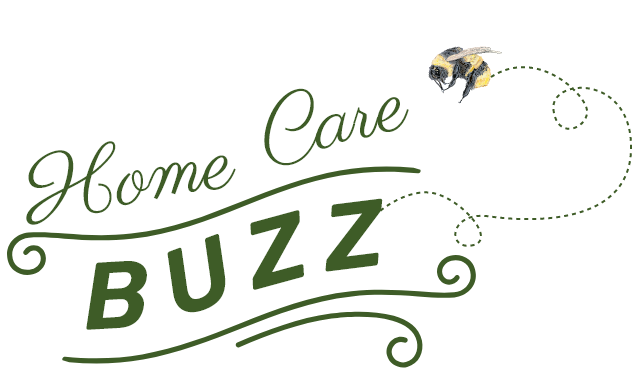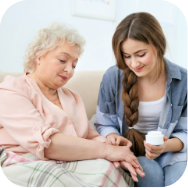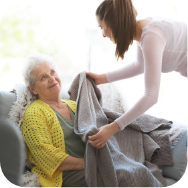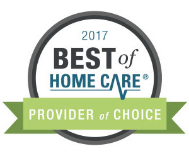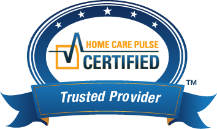LGBTQ+ Senior Community Aging In Their Homes
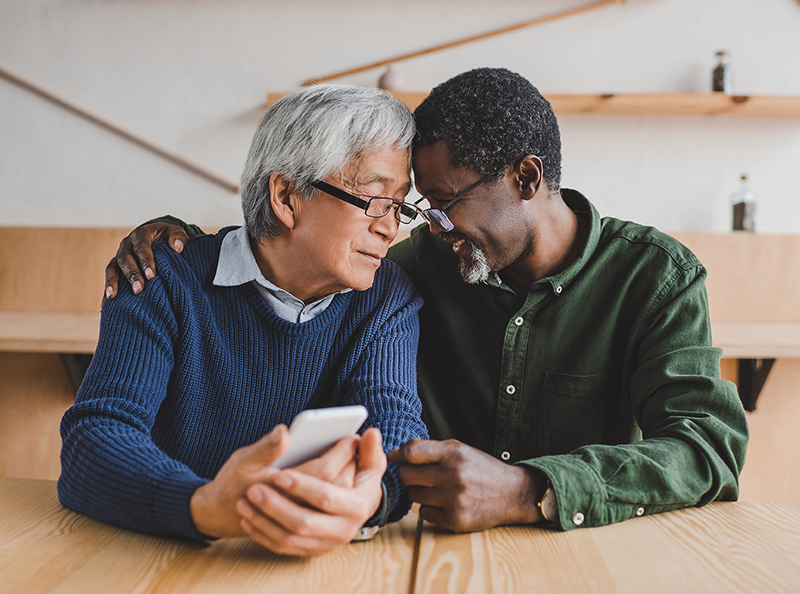
There are several awareness months celebrated in June — though one of the top five that often get the most attention is LGBTQ+ Pride Month. Across the country, organizations involved with older Americans are discussing ways to assist the senior community to age in their own homes and communities and how to remove barriers to aging in place. For LGBTQ+ elders, the ability to age at home is critical but often the services and supports that make that happen are barred to them.
It’s estimated that by 2030, there will be 5 million LGBTQ+ seniors over 65 in the U.S. They face overwhelming barriers in maintaining their independence as they age. They are twice as likely to live alone and are four times as likely to be childless as the general population. Many are estranged from their birth families due to family members’ unwillingness to accept their identity. Nearly one-third live below the federal poverty line.
As they age and need more assistance and care, LGBTQ+ seniors have fewer options than other senior people in general. They often cannot rely on children, spouses, or relatives for care and rarely have the financial resources to pay for private in-home care. But aging at home is often the only safe option for LGBTQ+ seniors, for whom the anticipated need for long-term care is a major source of stress.
Studies indicate that 30% of LGBTQ+ seniors fear that moving to a care facility will mean having to disguise their identity or being separated from their partner. A study of LGBTQ+ seniors who had entered long-term care themselves or had a loved one in long-term care revealed that nearly half had experienced mistreatment based on their real or perceived sexual orientation and/or gender identity. This included verbal or physical harassment from staff or other residents, restriction of visitors, and denial of needed care or medical services. For these reasons, LGBTQ+ seniors must be able to age in place, in the communities they have found and created.
Aging in place requires a network of services and supports that often are not available or not welcoming to LGBTQ+ seniors. For example, affordable senior housing is an essential lifeline. Research shows, however, that 48% of LGBTQ+ older adults who apply are discriminated against due to their identity. Many who do move into elder care communities experience discrimination and mistreatment after moving in.
Aging in place often requires a network of social support, such as meal delivery, transportation, and in-home assistance. But again, far too often LGBTQ+ seniors are excluded, marginalized, and ignored by senior programs. Almost three-quarters of LGBTQ+ older adults surveyed report that they do not feel they can use mainstream senior services without concealing their LGBTQ+ identity.
Recognizing the acute gaps in services and support, movements are emerging to create programs and spaces designed specifically for LGBTQ+ seniors. Such programs address multiple needs. For example, social programs and LGBTQ+ cultural celebrations create spaces for LGBTQ+ older adults to build social connections and celebrate their collective histories and identities. Group meals provide desperately needed nutrition while reducing isolation. Community centers for LGBTQ+ older adults offer a broad array of programs and supports. LGBTQ-friendly senior housing communities provide a home and shelter in welcoming and affirming environments.
However, LGBTQ+ seniors are not a homogeneous population. Programs designed for sub-populations with like experiences and needs are important. For example, SAGE and other organizations offer programs specifically for older lesbian and bisexual women, for transgender older adults, and LGBTQ+ senior veterans. Organizations like GRIOT Circle focus specifically on LGBTQ+ seniors of color.
If you or an aging loved one find yourselves in need of assistance, start your inquiries with Caring Companions At Home. We’re a California-licensed agency of caring, experienced staff and trained in-home caregivers in LGBTQ+ care, ready to assist you or your loved one. Check out our full range of services on our website or just give us a call at (888) 950-0750 and we'll gladly answer your questions, explain our services, and point you in the right direction.



